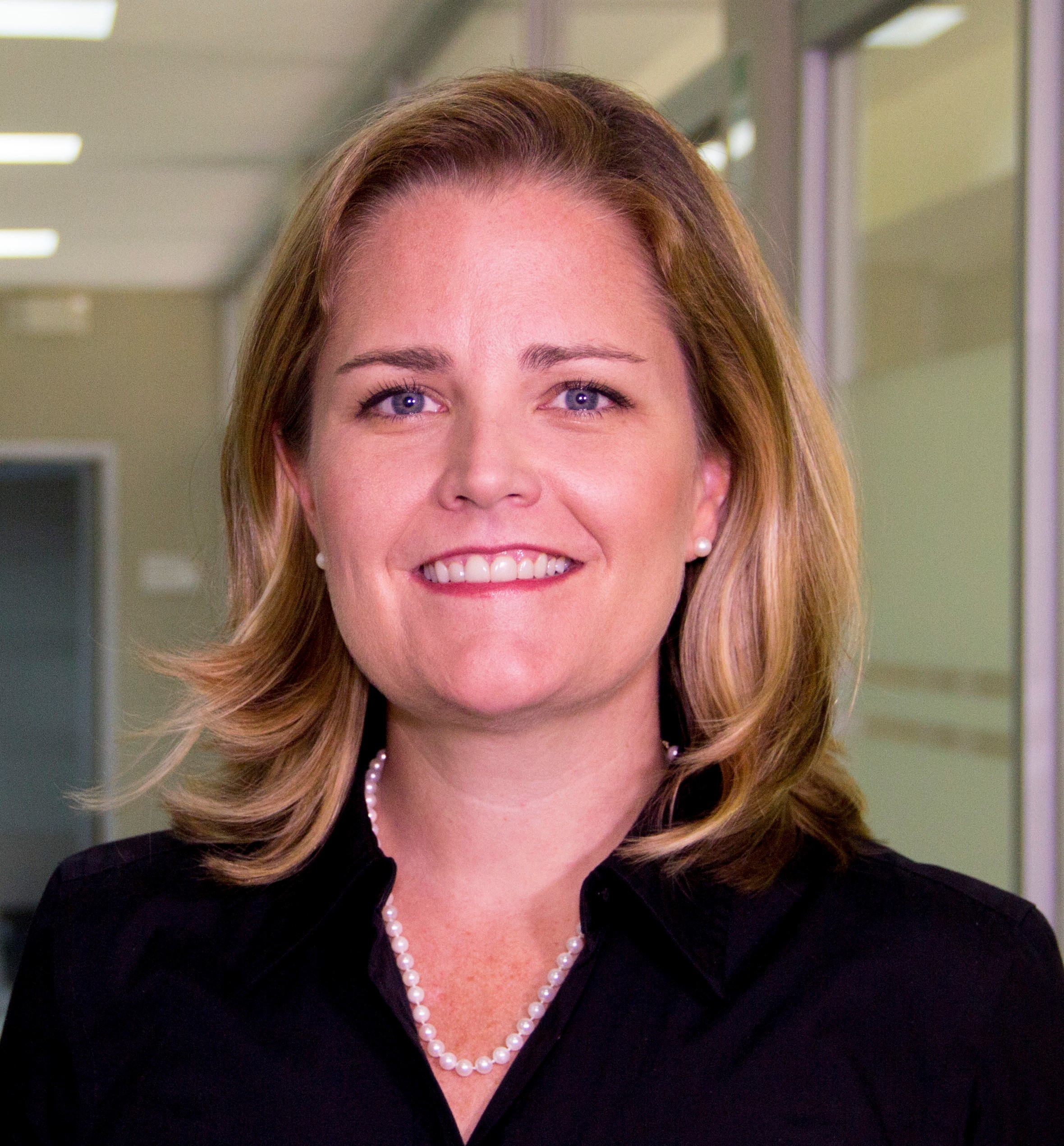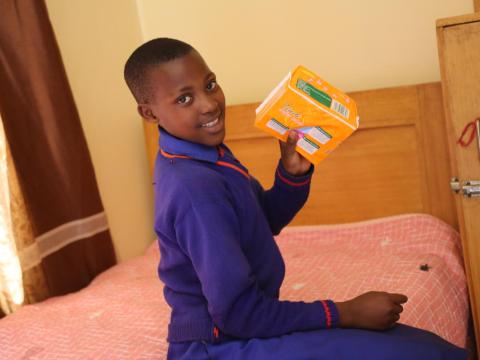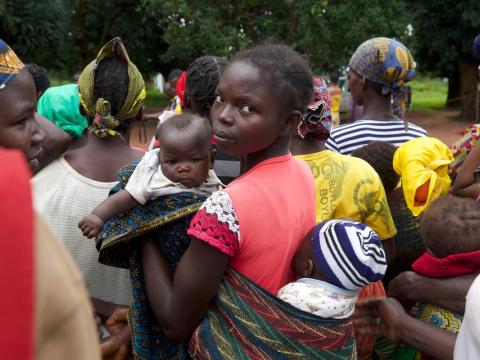
No, The Girls Are Not OK
Amanda Rives warns that things have got so much worse for millions of girls due to COVID-19, climate change and conflict.
“How are the girls doing?” As the mom of three girls, I get this question a lot. Thanks be to God, my girls are doing really well these days. After 2+ years of uncertainty, lockdowns, loss of family members, and virtual school, they are now thriving, healthy and vaccinated against COVID-19, trying new foods and cultures. They are working hard on multiplication and division, and our eldest is starting her first job.
As the interim Response Director of World Vision’s Global Hunger Response – our largest, most ambitious humanitarian response to date - sadly, I cannot say this is the case for great majority of girls where World Vision works. The girls are NOT OK.
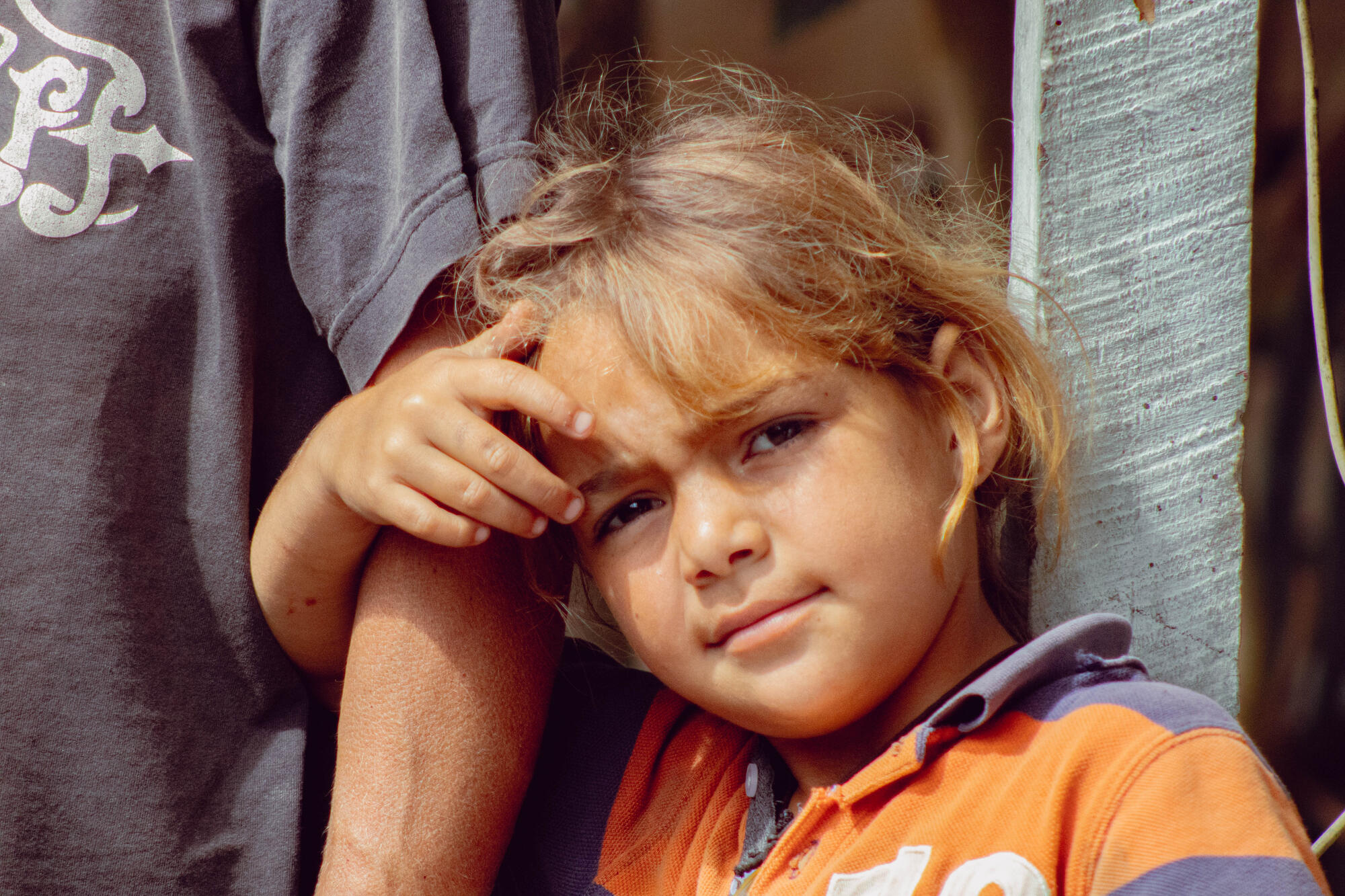
Since the COVID-19 pandemic started things have only gotten worse – the economic fallout from the pandemic + entrenched conflict + climate change, led to a perfect storm for girls in fragile contexts. The war in Ukraine then drove up food, fuel, and fertilizer prices around the world, creating further shock waves and turmoil even in otherwise stable, middle-income countries which are saddled with debt and little fiscal space to react. Girls, and boys, are on the receiving end of merging catastrophes.
The international development/humanitarian community is talking about a lost generation in contexts where just three years ago we were aiming for universal secondary or even tertiary education.
Now we are trying to figure out how save lives when more lives are at risk of starvation than ever before, without totally giving up on the Sustainable Development Goals and maintain momentum on Children’s Rights. As World Vision embarks on our annual 1000 Girls Campaign, how are the girls doing?
Girls are eating less – sometimes only 1 meal a day – and less nutritious food to sustain them.
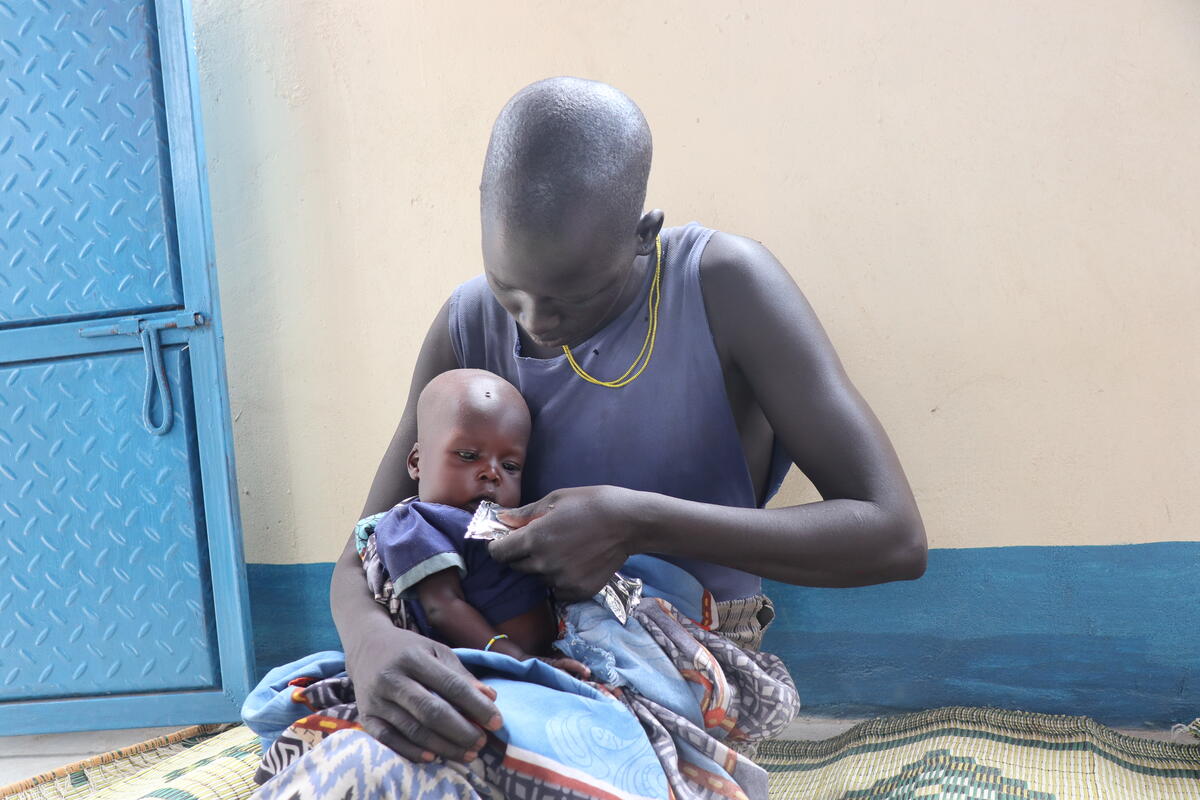
When families have less money and food prices are rising, meals get cut. In April 2022, World Vision surveyed refugees and IDPs in 11 countries, and found that 39% of people had reduced the quantity and quality of their meals. In the DRC, 81% of respondents reported they had reduced their quantity of meals – a 20% increase since 2021.
We know that adults skip more meals than children. Half of all adults and 1 out of every 3 children surveyed ate only once or twice a day.
World Vision also spoke to children across the six countries of our West Africa Hunger and Protection Response. Children said they have only one meal a day in Mauritania, Burkina Faso, Niger, and Central African Republic. “We eat only once a day, sometimes we go the night without eating.” -Child in CAR
Eating less harms children’s physical and mental development, and leads to malnutrition for millions of children. Children under the age of 5 who do not receive swift treatment are likely to die.
World Vision found that only 1 in every 5 households reported their children gaining weight. More than one third of respondents (35%) reported that their children had lost weight over the last 12 months – this number is even higher (50%) in Colombia and (46%) in Mali.
Girls are leaving school... if they made it back after COVID-19.
Children across West Africa reported missing school due to hunger, displacement, and the rising cost of food in all six countries - Mali, Niger, Burkina Faso, Chad, CAR, and Mauritania.
“Some parents cannot send their children to school because the money to pay for schooling has gone into the food ration which is extremely expensive.” - Child in Chad
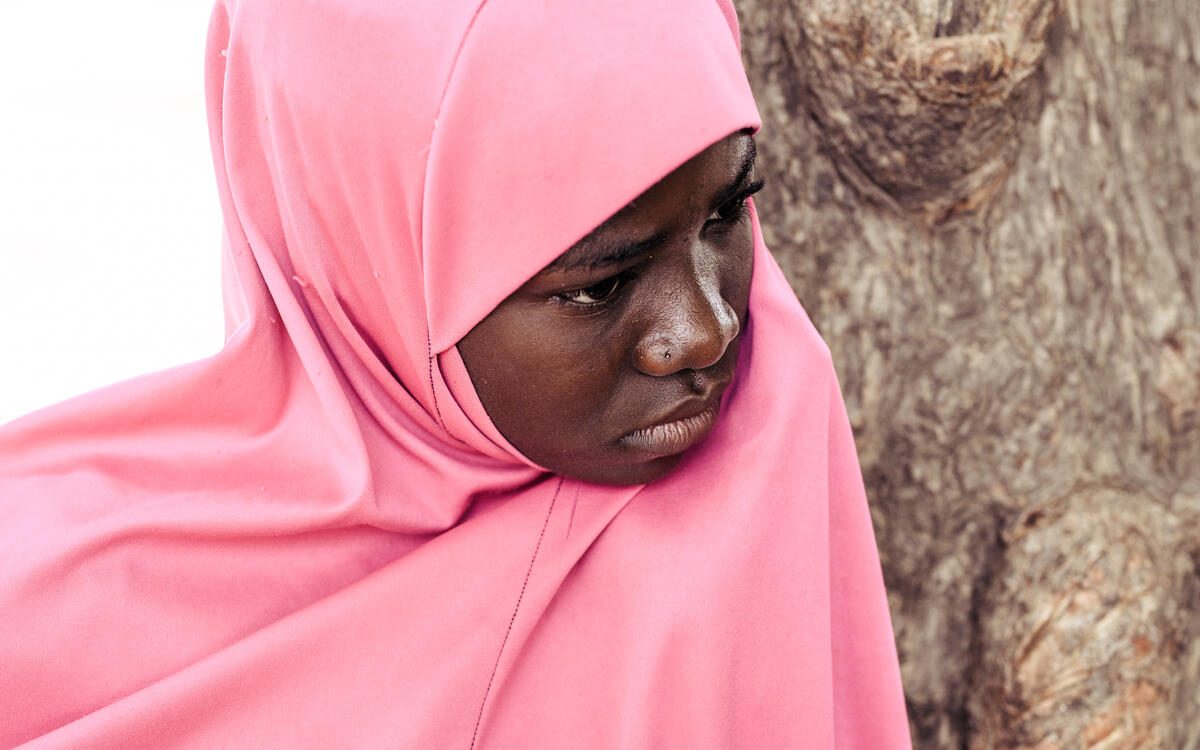
Children in the Central African Republic who can go to school said that they often go without food, and by the end of the day, they have vertigo, feel dizzy, and cannot concentrate from hunger. Worse, children in Niger said they have dropped a level in school because they have not been able to attend due to food insecurity.
When kids are out of school, their futures are in jeopardy, and they are much more vulnerable to abuse and exploitation. Kids know this too – and they explicitly told us when we talked to them last month.
Girls are getting married, going to work, or facing worse exploitation to help their families survive.
Children in Niger said that the lack of affordable food is pushing children into begging, prostitution, theft, etc. Sadly, children in CAR said they have witnessed the death of their own parents due to hunger. This leaves them extremely vulnerable to exploitation: “we finish school, we steal, we become uncontrolled and easy to manipulate.”
World Vision has also documented a huge increase, more than double, in child marriage during since the COVID-19 pandemic, due to decreased incomes, rising food prices, hunger, and desperation. As hunger increases, so do these coping mechanisms, which harm children and families alike.
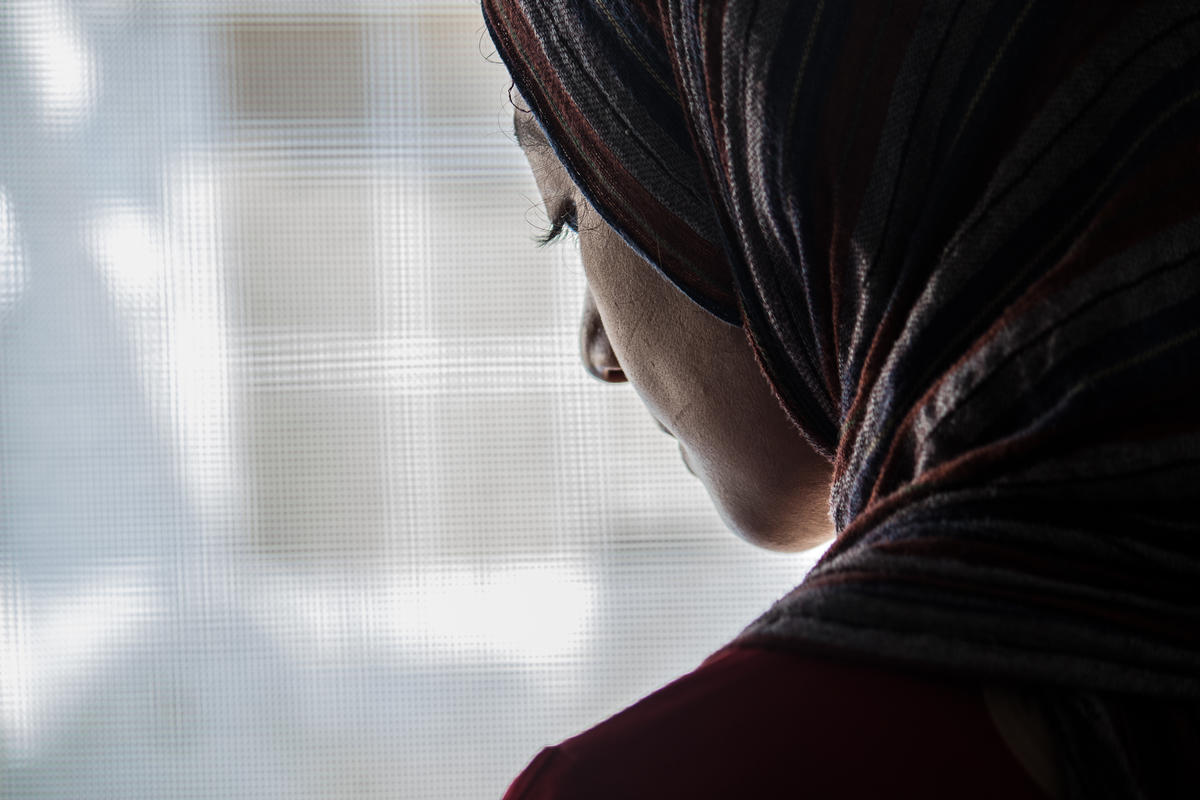
How is World Vision responding?
Through World Vision’s 25-country Global Hunger Response, we are bringing direct food aid, cash and voucher transfers, clean drinking water, health and nutrition services, as well as resilience, protection, and psycho-social support to 22 million of the world’s most vulnerable hungry people. We are also working to end all forms of violence against children which we know arise from coping with growing hunger, conflict, and displacement.
When friends and family ask me, “How are the girls?” I can’t help but think not just of my girls, but all the girls of all ages around the world who are facing challenges and obstacles which they had absolutely no role in creating. We must prioritise children and do more to ensure they not only survive, but thrive – with no worry as to where their next meal will come from, whether they will have a safe place to sleep, whether school will be open or if their parents can afford to keep them in school.
When Amanda isn't acting as interim Response Director of World Vision’s Global Hunger Response, she is the organisation's Senior Director of External Engagement and Resource Development in the Disaster Management. Follow Amanda on Twitter @AmandaRivesA
